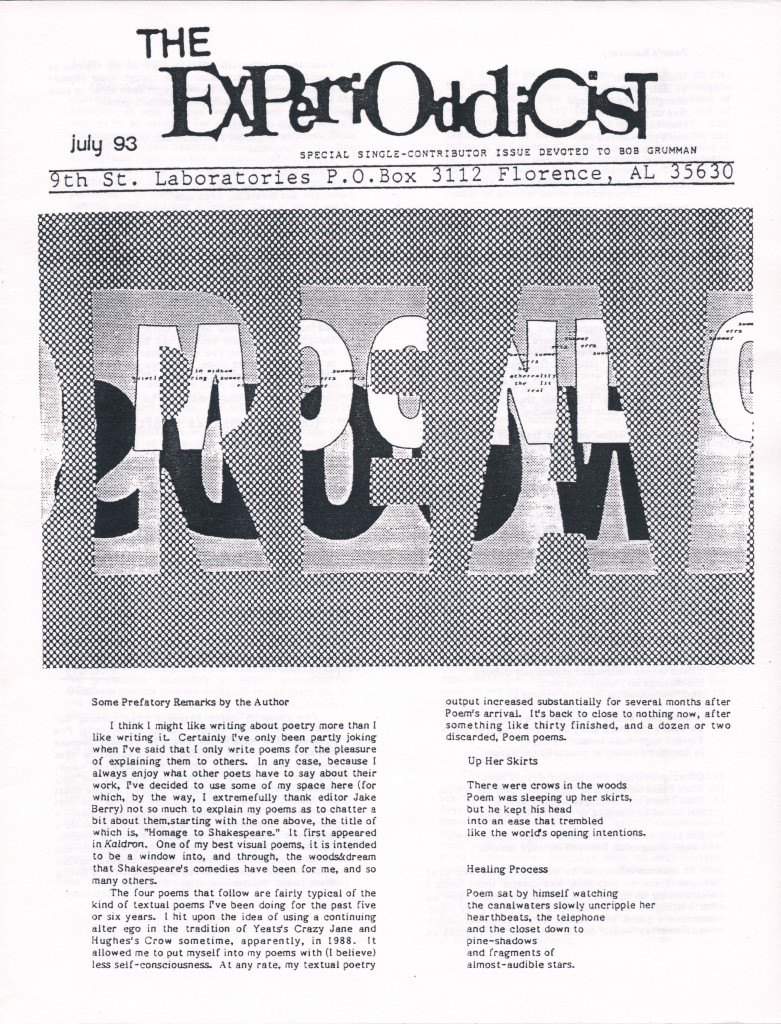Entry 572 — A Future for Poetry Anthologies
I think there’s good cause to be optimistic about the future, for I believe the Internet will solve the poetry anthology problem before long. All that is necessary is a superior search engine, connected to a much better version of the software Amazon uses to tell its customers about books they would be interested in based on their buying histories. I foresee a person’s having a poetry-interest profile based on a questionnaire and all kinds of other information that would analyze all books and websites of poetry and rate how much the person would like each one on a scale of zero to a thousand. The person could enter critiques of material encountered, and the profile would be connected to other persons’ critiques to allow the system to be self-correcting. The person would still have the option of checking some poet whose rating is two on his scale, out of curiosity, and just in case. If he wanted an anthology, he could have the program find and transmit three to six pages of poetry by each of the 175 20th-century American poets he’d most like likely enjoy as in the recent Penguin anthology (or 20, as there’d be in mine, or 500, as there’d be in Ron Silliman’s). A teacher could have a separate teacher’s profile that would reflect not the teacher’s taste but the teacher’s idea of what poetry a student ought to be exposed to. (there are poets I don’t think much of, at all, but still believe everyone with an interest in poetry should be exposed to.) There could even be totalitarian profiles listing poems people should avoid, or—in the kind of world the politically correct want—eliminating such poems and making people aware of the names of their authors.
Diary for Tuesday, 22 November 2011, 2 P.M.: Tennis is the morning. I’m still not running the way I feel I should, and my reactions are slow. 7 P.M.: I got this entry done, one exhibition hand-out done, and a little work on the book–but it was fairly consequential, for my section on the socioplex is now reasonably well-organized. I did a lot of authorship arguing on the Internet, too, none of it at the highest level, I fear. A little escape reading, a bit of Civilization. Feeling sleepy all day.
.
